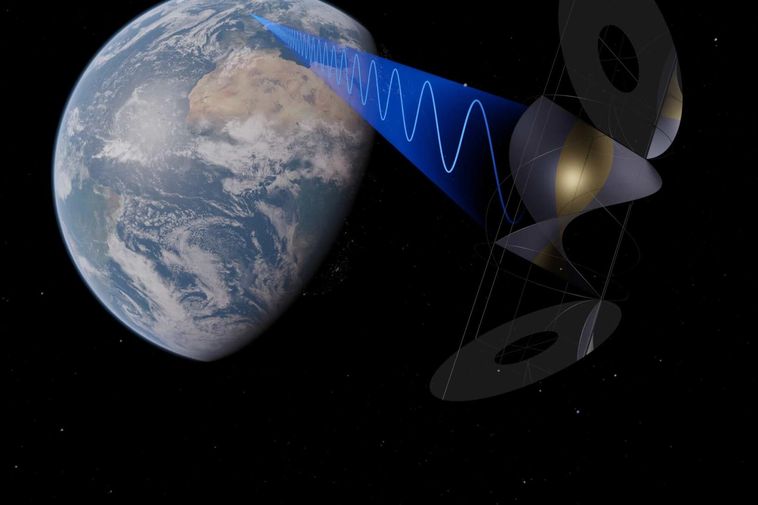
Iceland could be a reception site for solar power plants in space It is estimated that the first experimental power plant in an orbit around the earth will deliver 30 MW to Iceland. Photo/Sent to mbl.is Reykjavik Energy, the Icelandic climate company Transition Labs and the British high-tech company Space Solar have signed a tripartite memorandum of understanding for cooperation in connection with the activation of solar energy in space and the resale of potential energy generated during the research phase.
Iceland could be the host for the first solar power plant to be launched into space. The announcement states that independent research by professionals indicates that it will be possible to produce green energy with solar power plants on orbiters around the earth in a cost-effective way. "Space Solar has developed a solar power plant that is planned to be in an orbit around the Earth.
The technology is based on the fact that the power plant will activate the sun's rays and transmit the energy to the earth with short radio waves. It is planned that so-called ground stations will then receive the waves, transform them into electricity and deliver green renewable energy into the world's energy system," says the announcement. Presented at Reykjavik Energy's annual meeting The memorandum of understanding stipulates that the parties will work together on various aspects of the first phase of Space Solar's development.
It is estimated that the first experimental power plant in an orbit around the Earth will deliver 30 MW to the Earth. "The Icelandic climate company Transition Labs has collaborated with Space Solar for some time, as was reported in the media last spring. The project was also presented at the Reykjavik Energy's annual meeting last April," says the announcement.
"Transition Labs is working on the preparation of the development work as well as supporting Space Solar in business development, strategy and financing. The technology and science behind Space Solar's operation is well known, but there are still a number of engineering challenges to be solved regarding solar power generation from space." The announcement states that it is a challenge to choose locations for the first receiving stations of the energy on the ground.
A prototype of Space Solar's solar power plant has been tested at Queen's University Belfast in Ireland. Photo/Sent to mbl.is Reception stations in the northern hemisphere "We are looking to locate reception centers in the northern hemisphere, and in that regard Iceland, Canada and the northern part of Japan are being looked at, among others.
In the event of development in Iceland, it is important for us to cooperate with a leading Icelandic energy company on the resale of the energy, as well as other solutions related to the development," Kjartan Örn Ólafsson, managing director of Transition Labs, was quoted as saying in the announcement. "Reykjavik Energy is a dream partner for a project of this type, as the company has shown that it is forward-looking and does not shy away from a leading role when it comes to climate action." An exciting project "We at Reykjavik Energy are proud that parties like Space Solar should turn to us.
This is a hugely exciting project with a number of complex engineering challenges still to be solved. It's important to think big and support progressive projects," says Sævar Freyr Þráinsson, CEO of Reykjavik Energy. "The declaration of intent includes, among other things, the purchase of potential energy generated during the research phase.
We have also discussed helping the company connect to Landsnet's network. If these parties manage to solve the challenges, it could make a difference in the energy generation of the future.".










